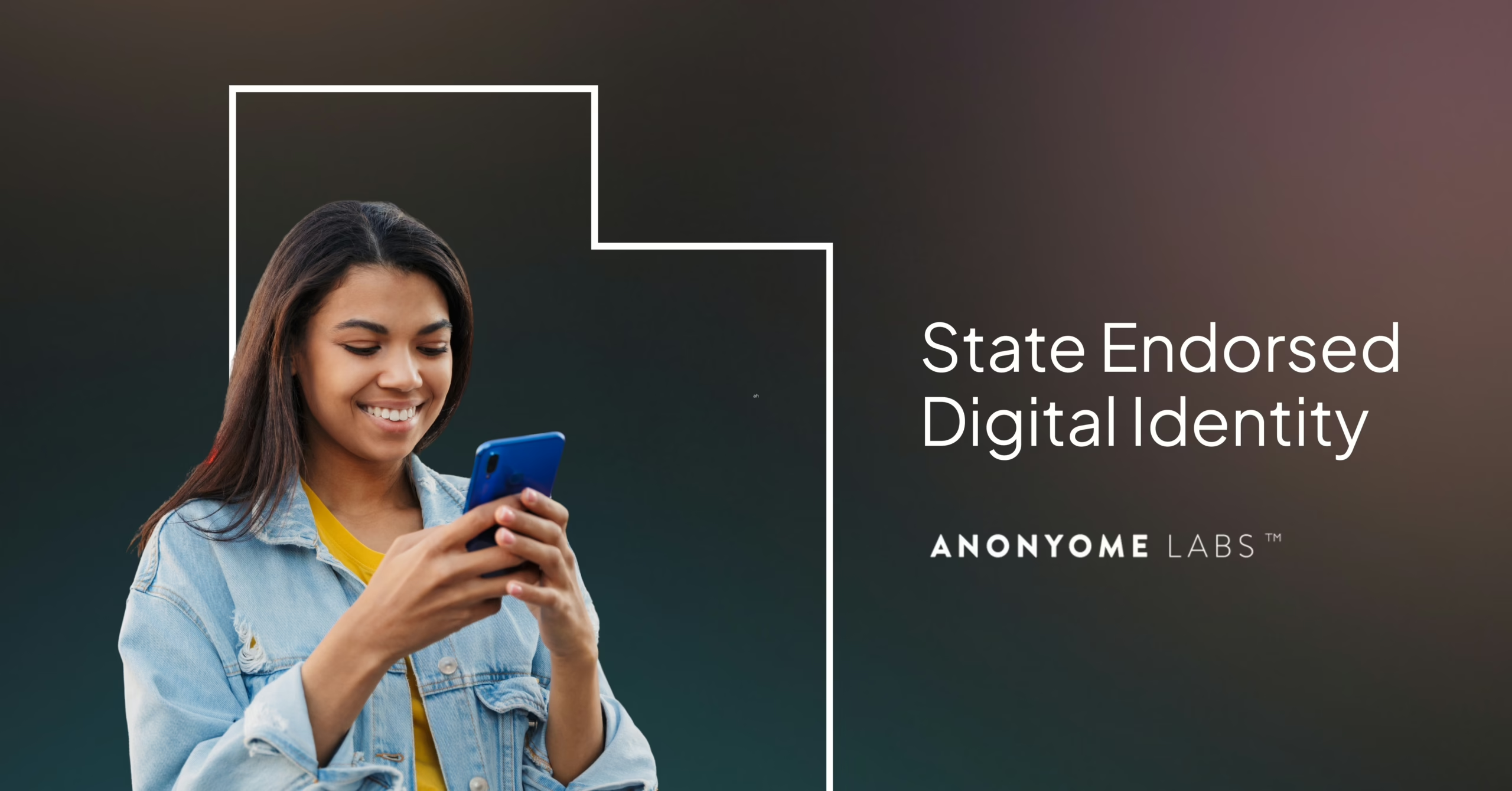Anonyome Labs has the most advanced decentralized identity mobile wallet SDK on the market—and the newly released version 3.0 is packed with features that customers can apply to their own products.
The new features in the latest version of our DI Mobile Edge Agent SDK represent the bleeding edge of decentralized identity (DI), align with European Union Digital Identity (EUDI) regulations, and maintain the modularity, reliability, and security of Anonyome Labs’ products.
Our DI Mobile Edge Agent SDK currently allows customers to easily integrate DI and verifiable credential (VC, or reusable credential) solutions into their applications and now, with version 3.0, these capabilities go even further. The DI Mobile Edge Agent SDKis a native SDK for both iOS and Android, and does not rely on any third party frameworks such as Javascript frameworks.
In nutshell:
- Anonyome Labs Edge Agent SDK 3.0 adds support for OpenID4VC (OpenID4VCI and OpenID4VP), expanding its suite of protocols for receiving and presenting credentials, in addition to the already supported Aries protocols.
- Anonyome Labs Edge Agent SDK 3.0 builds on its collection of supported credential formats (Anoncreds and W3C) with the addition of IETF SD-JWT VCs, increasing interoperability and supporting new privacy-preserving use cases.
- Anonyome Labs Edge Agent SDK 3.0 updates its supported Aries protocols, maintaining interoperability with the latest Aries agents in the ecosystem.
- Anonyome Labs Edge Agent SDK continues to exist in the ecosystem of Anonyome’s DI offerings, such as in the Anonyome Labs Cloud Agent Service and the Anonyome Labs Decentralized Identity Relay.
- Having accomplished what was on the roadmap we set out in our previous article, we’ve outlined our new enhanced roadmap, including continued investment into OpenID4VC capabilities, and expansion for new DID Methods (such as Cheqd).
Let’s break these down:
Adds support for OpenID4VC protocols
With our DI Mobile Edge Agent SDK already having support for Aries protocols for receiving and presenting VCs (Issue Credential and Present Proof), version 3.0 ventures into the new OpenID4VC protocol suite (OpenID4VCI and OpenID4VP).
This move allows for wider interoperability with the DI ecosystem, including within the EUDI ecosystem where these protocols are being used in technical specifications (such as the Architecture Reference Framework) and pilot deployments.
These new protocols also help achieve new use cases and wallet UX flows alongside the existing Aries protocol’s use cases. A few of the notable differences are:
- Being rooted in industry-standard OAuth 2.0 flows, OpenID4VC allows standard OAuth authorization flows to be used in credential issuance flows.
- Multiple credentials can be offered in the same flow, where the Edge Agent SDK consumer can browse and request the desired credential.
- The issuer now conveys support for UI display data in the credential exchange, including issuer and credential colors, text, and logos.
- There’s no prerequisite to establish an existing DIDComm connection. Credential and presentation exchange flows can begin immediately from an initial QR code scan or deep link click.
The possibilities and protocol variations in OpenID4VC are vast. To home in on the variations the Edge Agent SDK will support in this release, we’ve targeted interoperability with the OpenID4VC verifier and issuer capabilities of the popular open-source projects credo-ts and ACA-Py.
Builds on supported VCs formats, with IETF SD-JWT VCs
IETF’s SD-JWT VCs is the latest credential format to enter our Edge Agent’s suite of supported formats, alongside W3C VCs and Anoncreds.
Like the new OpenID4VC features, this new credential format enables new use cases and wider interoperability with the DI ecosystem, since SD-JWT VC is a preferred format in the EUDI ecosystem.
SD-JWT VCs are designed with selective disclosure in mind, allowing for the building of user-centric privacy-preserving use cases. Using SD-JWT VC, the holder can selectively choose to hide certain attributes of their credential (if the issuer permits it), so that when they present their credential in some use cases, they present only the bare minimum to satisfy that use case. By default, our Edge Agent SDK will always disclose as little as possible when presenting SD-JWT VCs, protecting the privacy of our consumers.
Our Edge Agent SDK could already support some of these use cases via Anoncreds and the BBS-variant of W3C VCs, but SD-JWT VCs differ from these formats in that they use NIST FIPS-compliant cryptography—an attractive feat for EUDI regulation.
Updates supported Aries protocols
In addition to our major venture into the new OpenID4VC protocol suite, we continue to maintain and expand our Aries protocol suite. Since 2.0, the Edge Agent SDK has added support for the latest Aries connection protocol, DID Exchange.
This new protocol has new UX optimizations for Edge Agent SDK consumers where DIDComm connections can be re-used if a duplicate connection is detected when receiving a DIDComm invitation. But, just as importantly, this feature ensures the Edge Agent SDK remains aligned with the latest Aries Interoperability Profile (AIP).
Exists in the ecosystem of Anonyome’s DI offerings
As a market leader in innovative decentralized identity (DI) technology offerings, Anonyome Labs continues to advance its DI solutions, supporting a wide range of use cases. Our Edge Agent SDK continues to seamlessly integrate with our highly scalable DI message relay solution, the Sudo DI Relay SDK, allowing the edge agent to reliably receive messages from the DIDComm peers it connects with. What’s more, we continue to thoroughly test our Edge Agent against our Cloud Agent Service offering (in addition to a suite of open source DI agents) to make sure all our features remain interoperable in the DI ecosystem.
Rich roadmap ahead
With this extensive third release, Anonyome’s DI Mobile Edge Agent SDK has once again exceeded its roadmap, going beyond the plan laid out since the previous release announcement. But we are not slowing down: we plan to keep adding features to every new release of the SDK so our customers’ applications can stay up to date with the latest and greatest in the DI ecosystem.
Going forward for the SDK, we plan to continue updating our OpenID4VC protocol suite. Despite being deployed in many EUDI pilots, OpenID4VC protocols are still in draft status. We plan to stay up to date with these protocols as they approach their official 1.0 release, aligning with the EUDI. We also plan to:
- Enhance our OpenID4VC protocol implementations with new capabilities, such as OpenID4VCI’s “Authorization code flow”, enabling use cases where users must perform a standard OAuth login to access a credential
- Add support for OpenID’s SIOPv2 protocol, allowing for new “login with decentralized identifier” use cases
- Continue expanding the set of DID methods we support, such as did:cheqd, did:tdw, and did:jwk, again increasing the level of interoperability with more DI agents.
Anonyome Labs’ business solution combines a scalable identity foundation and menu of enterprise-ready APIs and SDKs, so you can quickly build and deploy next-generation privacy, cyber safety, and decentralized identity apps to help your customers communicate privately, navigate online safely, and transact securely in an increasingly connected world.



